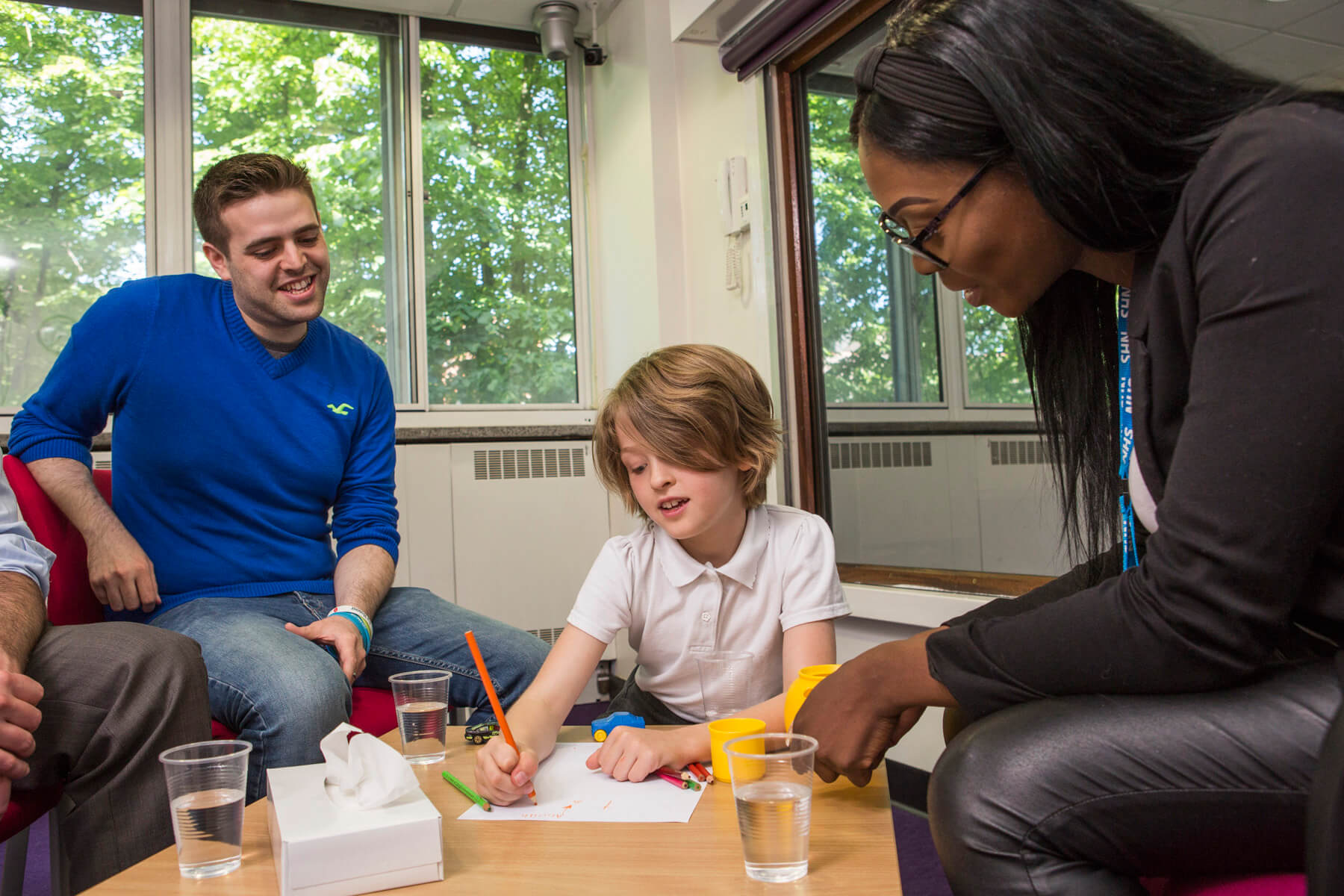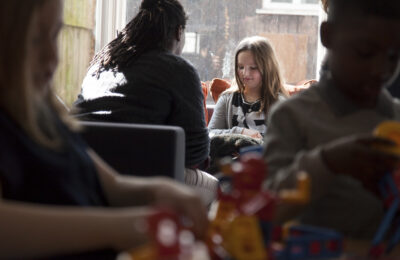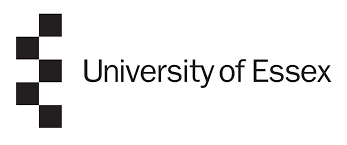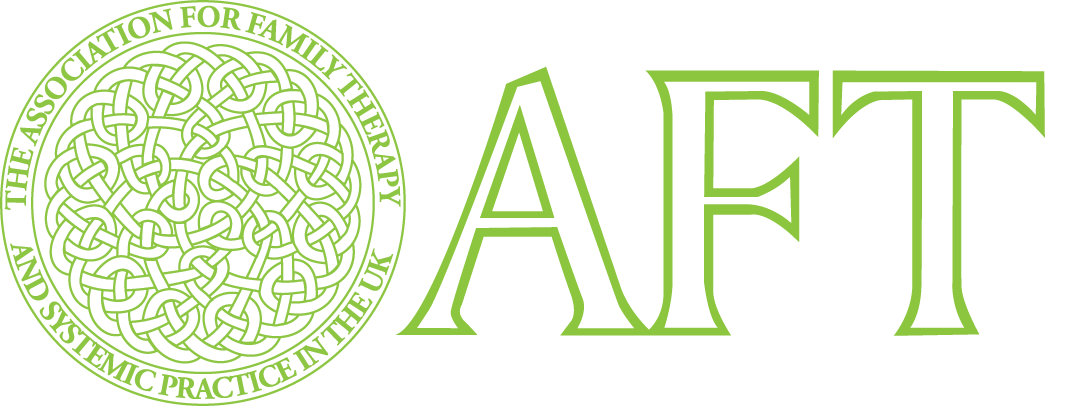
Child, adolescent and family mental wellbeing multidisciplinary practice (D24)
Join our award winning, postgraduate course exploring child, adolescent and family mental healthcare and practice
This unique, award-winning course explores the fundamental aspects of child, adolescent and family mental healthcare and practice, informed by psychodynamic, systemic and child development theories.
The course was awarded the ‘Excellence in multi-professional education and training 2014 award’ by Health Education North Central and East London and is accredited by the Association for Family Therapy. We welcome and actively encourage applicants from minority ethnic and other diverse backgrounds.
The deadline for applications to this course is provisionally set for Sunday 30 June 2024. However, we encourage you to submit your application as soon as possible, as spaces are limited and can be competitive.
Please note: you may see the D24 course also referred to as PTPCTP001 in communications from our application system.
About this course
On this course you will learn through theoretical seminars and lectures, infant observation and/or family observation, work practice discussions, experiential groups, personal tutorials and a four-day group relations conference. All teaching takes place in multidisciplinary groups.
As part of the course, you will have the opportunity to attend a specially designed, multidisciplinary group relations conference entitled ‘Exploring the complex realities of inter-agency working’, which seeks to explore the difficulties and benefits of interdisciplinary and inter-agency work.
Theoretical seminars
Theoretical seminars will develop your understanding of psychodynamic, systemic and developmental concepts and how they can be applied in working effectively with children, young people and families where emotional and mental health difficulties exist.
You will study child and family development theories and research, and explore the factors that affect mental health and wellbeing in children, young people and families and common presenting issues. Issues relating to equalities, diversity and inclusion are addressed directly through specific theoretical lectures as well as being embedded in the lecture and seminar series more broadly.
Observation
You will undertake an observational module choosing between an infant/young child or family observation. These seminars will draw upon psychodynamic and systemic theories and develop your observational skills and capabilities.
You will be encouraged to think carefully about aspects of your own and the observed family’s identity and the relationship between these as part of the observation process. If you choose and successfully complete the family observation module and a small amount of additional work, you will achieve the AFT foundation level award.
Work discussion
These small multidisciplinary professional practice groups will draw on your practical work experience and aim to develop your capabilities in thinking and in practice. These components aim to facilitate the integration of relevant theoretical ideas and research in order to develop advanced therapeutic practice skills in working with children, young people and families.
Experiential group
You will have the opportunity for experiential group learning via a range of delivery modes; work discussion, experiential group and group relations conference.
The experiential group will take place every week and offers an opportunity for students to gain an understanding of the processes at work in groups and their own role in these processes. You will be encouraged to explore your experience of working in the group with others who can be different from yourself in terms of race, gender, sexuality and socio-economic background and you will learn from others’ perspectives and examine your own relationship to these.
As part of the course you will have the opportunity to attend a specially designed multi-disciplinary group relations conference entitled ‘Exploring the complex realities of inter-agency working’, which seeks to explore the difficulties and benefits of interdisciplinary and inter-agency work. A personal tutor will support your professional and personal development on the course.
Who is this course for?
This course is for you if you work in the field of child, adolescent or family mental health, and wish to improve your knowledge and capabilities. You may be a:
- counsellor
- psychotherapist
- social worker
- nurse
- health visitor
- education professional
- occupational therapist
- creative arts therapist
- child and adolescent primary mental healthcare worker
- child and adolescent mental health services (CAMHS) practitioner or working with children and families in the voluntary or statutory sector
Course details
In order to undertake this course, we ask that you:
- hold an appropriate professional qualification relevant to your chosen career
- have significant practical and/or direct experience in working with children, adolescents and/or families
- have an undergraduate degree, degree equivalent, or evidence of other relevant post-registration education/experience
- are in a full-time or part-time post (paid or voluntary) in which you are working with children, adolescents and/or families experiencing difficulties, be they behavioural, emotional or psychological, where you have a remit to make a difference in your work
Home
£5,400 per year (2024/25)
International
£10,800 per year (2024/25)
You will be charged course fees for each year of your course. If your course is longer than one year, the fees that you will be charged after the first year will be subject to an annual inflationary increase. This will either be an increase of 3% or the Consumer Price Inflation as on 1 September of that year – whichever is the greater. At its discretion, the Trust may determine a figure between these two rates. Please refer to our Student Fees & Refund Policy for further information.
Financial support may be available to help you fund your studies at the Tavistock and Portman NHS Foundation Trust.
Assessment
The three main modules (module one: work discussion groups and lecture series, module two: infant/young child observation seminars or module three: family observation and module four: child development and current research lecture series) are each assessed by way of an academic essay.
Submission dates for these are spread out over the spring and summer terms.
In order to successfully complete the course, you will need to pass the three essays, attend the group relations conference and have a minimum of 75% attendance on all parts of the course.
Attendance
You will study on Mondays from 10am to 6pm for one year.
Students on the this course have appreciated its multi-modal approach and made use of it to develop their work in settings such as education, social care and CAMHS.
Others have used it as a stepping stone into further systemic, psychodynamic or multi-modal training.
Why study with us?
This is a unique opportunity to study on an award-winning multidisciplinary course. You will be able to develop a theoretical framework for understanding child, adolescent, and family development and family functioning that will inform your practice.
You will gain advanced knowledge and fundamental therapeutic skills, drawing upon psychodynamic and systemic theories. You will have the capability to undertake informed early assessment, skilful and effective preliminary work, and/or know how and where to refer children, young people and families for more specialised treatment whilst always having the service user perspective at the centre of your practice.
Course facilitators
Validations and accreditations
This course is validated by the University of Essex.
This course is accredited by the Association for Family Therapy and Systemic Practice.
Apply now
Start your application for this course.
Recommended courses
Explore courses to study beforehand
- Graduate diplomaEligible for Student Visa

Emotional care of babies, children, young people and families (EC1)
Explore courses to study next
-
 Master’s Eligible for Student Visa
Master’s Eligible for Student Visa
Psychological therapies with children, young people and families (M34)

